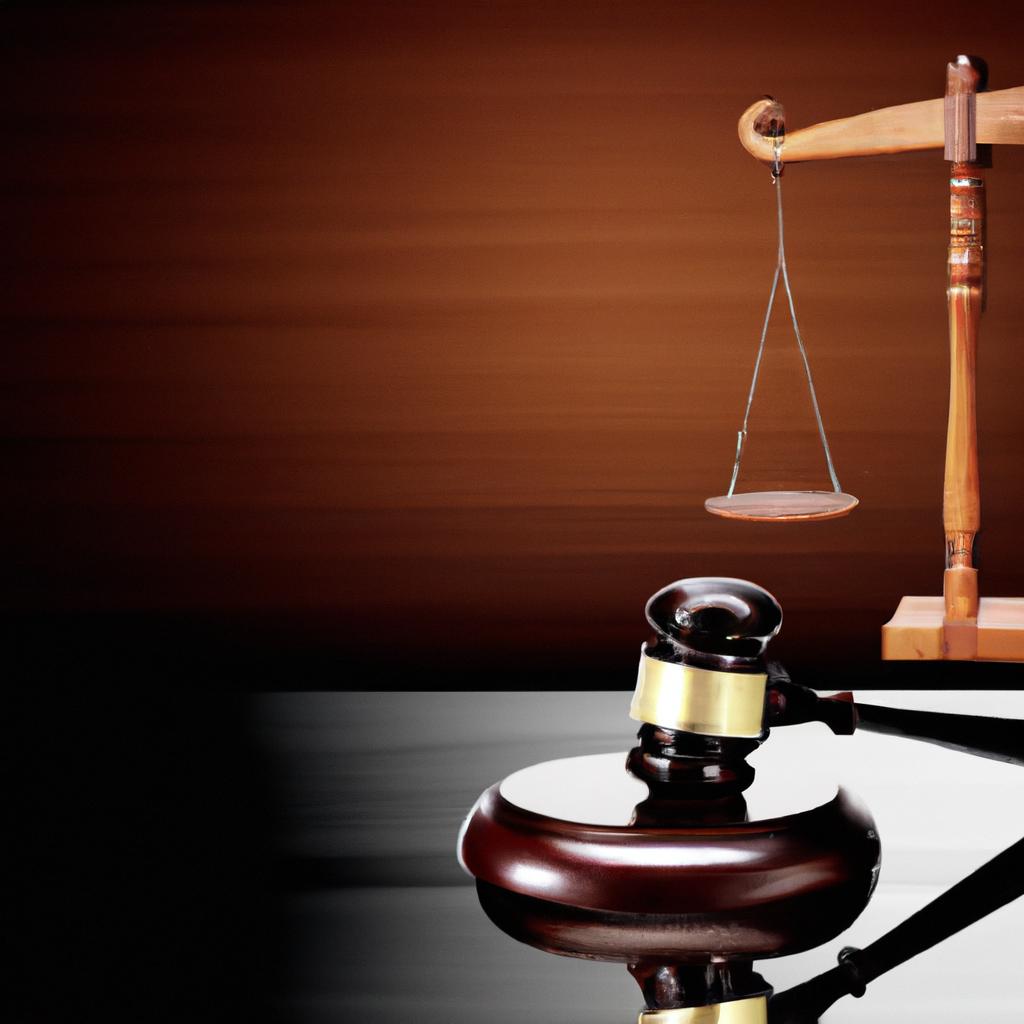In the intricate tapestry of estate planning, the cornerstone document that stands as a testament to one’s final wishes is the last will and testament. As experienced practitioners in the realm of law, we at Morgan Legal Group, nestled in the bustling heart of New York City, understand the importance of clearly defining and articulating one’s wishes in this pivotal legal instrument. Join us as we delve into the intricacies of what a last will and testament truly entails, unraveling its significance and guiding you through the process of safeguarding your legacy.
Understanding the Purpose and Scope of a Last Will and Testament
When it comes to estate planning, a Last Will and Testament is a crucial document that dictates how a person’s assets and belongings will be distributed after their passing. This legal document allows individuals to specify their wishes regarding their estate, ensuring that their loved ones are protected and provided for according to their desires. A Last Will and Testament can also appoint guardians for minor children, designate an executor to handle the estate, and even establish trusts for beneficiaries.
is essential for anyone looking to create an effective estate plan. This document not only ensures that your assets are distributed according to your wishes but also helps to minimize family conflicts and streamline the probate process. By working with experienced estate planning professionals, such as the team at Morgan Legal Group in New York City, individuals can rest assured that their Last Will and Testament accurately reflects their intentions and provides peace of mind for themselves and their loved ones.

Key Elements to Include in a Comprehensive Last Will and Testament
When creating a comprehensive last will and testament, there are several key elements that should be included to ensure your final wishes are carried out as intended:
- Executor: Designate a trusted individual to handle the administration of your estate and ensure your wishes are carried out.
- Beneficiaries: Clearly identify who will inherit your assets, whether it be family members, friends, or charitable organizations.
- Guardianship: If you have minor children, specify who will be responsible for their care in the event of your passing.
Additionally, it is important to include provisions for any specific bequests, such as personal belongings or sentimental items, as well as instructions for the distribution of your remaining assets. It is also advisable to include contingencies for unforeseen circumstances, such as the death of a beneficiary or changes in tax laws that may affect your estate.
| Element | Description |
|---|---|
| Executor | Person responsible for administering the estate |
| Beneficiaries | Individuals or organizations who will inherit assets |
| Guardianship | Designation of caretaker for minor children |

Legal Requirements and Formalities for Drafting a Valid Last Will and Testament
A Last Will and Testament is a legal document that allows an individual to designate how their assets and property will be distributed upon their death. It is an essential part of estate planning and ensures that your final wishes are carried out according to your instructions. To draft a valid Last Will and Testament, there are certain legal requirements and formalities that must be followed:
- **Capacity:** The testator must be of sound mind and legal age to create a Will.
- **Intent:** The testator must have the intention to create a Will and understand the consequences of their decisions.
- **Signature:** The Will must be signed by the testator in the presence of witnesses.
- **Witnesses:** The Will must be signed by at least two witnesses who also sign the document in the presence of the testator.
Failure to adhere to these legal requirements and formalities can result in the Will being deemed invalid and not legally enforceable. It is important to consult with an experienced estate planning attorney, such as Morgan Legal Group in New York City, to ensure that your Last Will and Testament complies with all necessary laws and regulations.

Expert Recommendations for Updating and Reviewing Your Last Will and Testament
When it comes to updating and reviewing your last will and testament, it is crucial to seek expert recommendations to ensure that your final wishes are properly documented and legally binding. At Morgan Legal Group in New York City, our team of experienced estate planning attorneys understands the importance of regularly reviewing and updating your will to account for any changes in your life circumstances or laws.
One essential recommendation from our experts is to review your will at least every three to five years or whenever a significant life event occurs, such as marriage, divorce, birth of a child, or acquisition of new assets. Additionally, it is important to seek legal advice to ensure that your will complies with current state laws and addresses all of your wishes and intentions. By following these expert recommendations, you can have peace of mind knowing that your last will and testament accurately reflects your wishes and protects your loved ones.
Q&A
Q: What is a last will and testament?
A: A last will and testament is a legal document that outlines a person’s final wishes regarding how their assets and property should be distributed after their death.
Q: Why is it important to have a last will and testament?
A: Having a last will and testament ensures that the deceased’s wishes are carried out and can help prevent disputes among family members over assets and inheritance.
Q: What happens if someone dies without a last will and testament?
A: If someone dies without a last will and testament, their estate will be distributed according to the laws of intestacy in their state, which may not align with their wishes.
Q: Can a last will and testament be changed?
A: Yes, a last will and testament can be changed or updated at any time as long as the person is of sound mind and follows the proper legal procedures.
Q: Who should have a last will and testament?
A: It is recommended that all adults, regardless of age or wealth, have a last will and testament to ensure their final wishes are carried out as desired.
Closing Remarks
In conclusion, understanding the significance of a last will and testament is crucial for ensuring your final wishes are carried out as you intended. By clearly outlining how you wish to distribute your assets and make important decisions, you can provide peace of mind for both yourself and your loved ones. Remember, creating a last will and testament is a responsible and empowering step towards securing your legacy for generations to come.
 ***
***
Understanding the importance of a last will and testament is crucial for any individual looking to leave a legacy and ensure their final wishes are carried out after their passing. While many people may have heard the term before, there are still many misconceptions and uncertainties surrounding the concept of last will and testament. In this article, we will provide a comprehensive definition of last will and testament, its purpose, and the key elements involved.
What is a Last Will and Testament?
A last will and testament, commonly referred to as a will, is a legal document that outlines an individual’s final wishes regarding the distribution of their assets, properties, and possessions after their death. It also designates who will be responsible for managing and distributing these assets, as well as any other final arrangements such as funeral preferences and guardianship of minor children.
Purpose of a Last Will and Testament
The main purpose of a last will and testament is to ensure that an individual’s wishes are carried out and their loved ones are taken care of after their passing. It serves as a legally binding document that provides clear instructions on how the individual’s estate should be divided and managed. Without a will, the individual’s assets will be distributed according to state laws, which may not align with their personal wishes.
Key Elements of a Last Will and Testament
To be considered legally valid, a last will and testament must contain several key elements. These include the testator’s (person making the will) declaration of their mental competence, the designation of an executor or personal representative, and the list of beneficiaries and the assets they will receive. The will must also be signed by the testator and two or more witnesses who are not beneficiaries.
Benefits and Practical Tips
1. Avoids Intestate Laws
Having a last will and testament ensures that your assets are distributed according to your wishes, rather than relying on state laws. This can be especially important for blended families or individuals with specific plans for their assets.
2. Protects Minor Children
A will allows you to name guardians for any minor children, ensuring their well-being and care in case of your passing.
3. Delegate Responsibilities
By designating an executor or personal representative in your will, you can choose someone you trust to handle the distribution of your assets and fulfill your final wishes.
4. Peace of Mind
Having a last will and testament in place can bring peace of mind, knowing that your loved ones will be taken care of according to your wishes.
When Should You Create a Will?
It is never too early to create a last will and testament. While it may not be a comfortable topic to think about, it is important to have one in place to avoid any confusion or disputes after your passing. Additionally, any major life events such as marriage, divorce, or the birth of a child should prompt a review and possible update of your will.
Case Study: The Importance of a Last Will and Testament
In 2019, the death of legendary singer Aretha Franklin shed light on the consequences of not having a will. Despite her considerable wealth, the singer passed away without a will, leading to a long and complicated legal process for her family. This serves as a prime example of the importance of having a will in place, regardless of the size of your assets.
First-Hand Experience
“I never thought about creating a will until my father passed away suddenly without one. It was a difficult and stressful time for my family as we had no clear instructions on how to handle his estate. After that experience, I immediately created a will to ensure my final wishes are known and my loved ones are taken care of after my passing.” – Sarah, 32
In conclusion, a last will and testament is a vital legal document that should not be overlooked. Its purpose is to ensure your final wishes are carried out and your loved ones are taken care of after your passing. By understanding its key elements and potential benefits, you can take the necessary steps to create a will and secure your legacy for future generations. Remember to review and update your will periodically to ensure it reflects your current wishes and life circumstances.

